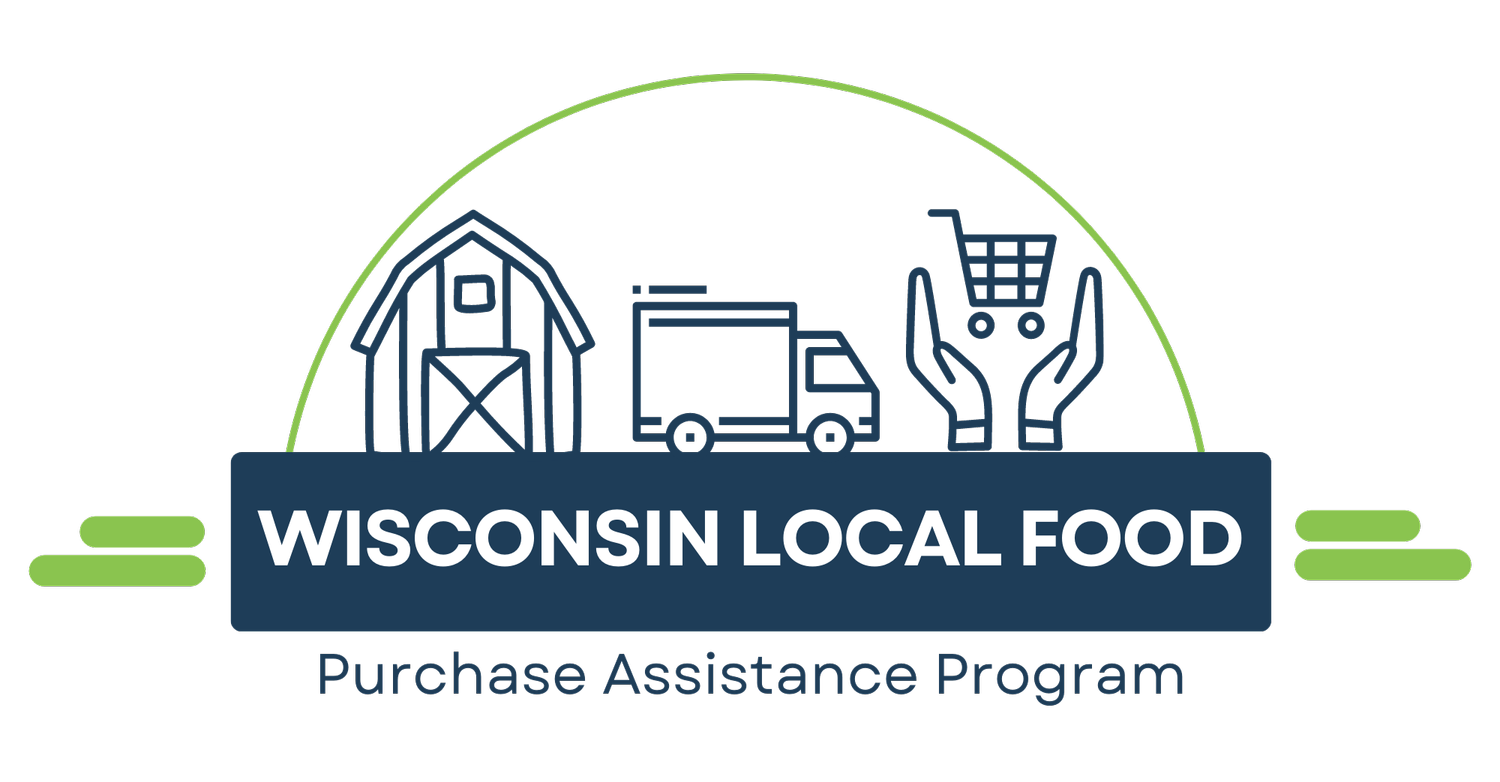Heritage Grange Farm Honors Family and Builds Community
FULL STORY
In 1962, Nina Much’s parents purchased a farm on County Road O in Manawa. Their dream was to become pastured dairy farmers and support their growing family. Much was just one year old at the time and by nine years old she was helping her father milk their family’s cows. Sixty-one years after her parents originally purchased the farm, Much is honoring their legacy by managing a small herd of cattle on the property and enriching her community’s food system, with support from the Wisconsin Local Food Purchase Assistance Program (WI LFPA).
Much’s farm, Heritage Grange, is a testament to her family’s history on the land as well as her dedication to the food security of her neighbors.
“A part of me is trying to honor my mom and dad because I know how hard they worked to build the farm and build hope for their kids,” Much said. “I also wanted to do something local. I wanted local people to know where their meat was coming from and that they could actually just drive past my farm and see the animals.”
Much’s inspiration to return to farming as an adult came in 2018 when she was invited to attend a meeting for landowners and farmers living and operating within the Bear Lake/Little Wolf Watershed. She heard a presentation from the Waupaca County Land and Water Conservation Office and the local Natural Resources Conservation Service (NRCS) office which inspired her to learn more about managing her family’s property.
“I recall that, throughout my younger years, our family spent a great deal of time along the banks and on the Little Wolf River, whether it was fishing or trapping,” Much said. “Protection of the river and streams is vitally important.”
As a landowner Much was interested in the management decisions she could make to help ensure that she was not contributing to groundwater contamination by poor land use practices. After attending the informational meeting, Much began working with both agencies more in depth.
“I started attending pasture walks and other educational opportunities which brought back childhood memories from growing up on the farm back in the 1970s,” she said.
By 2019, five acres of Much’s land was fenced in with a waterline. In the spring of 2020 she purchased her first three head of beef steers to begin seasonal rotational grazing.
“When we were hit with the COVID-19 pandemic and the isolation, I knew people were going to need food,” Much said. “If I could sell beef in quarters and halves, families and friends would be able to stock up on what they needed; I sold out the first year.”
In the fall of 2022, the expansion of Much’s farm began with the conversion of an additional 25 acres into pasture. Fencing was completed prior to Thanksgiving and in the spring of 2023 water lines were installed, all with the help of the Environmental Quality Incentives Program (EQIP) through the local NRCS office in Waupaca. As of 2023, Much is rounding out her fourth year in operation.
“I went from managing five acres and three head of cattle to grazing 15 head of cattle on 30 acres, with the rest of the farmland being utilized for making hay,” she said. “With the drought this year, running only 15 head was a good plan, as there was enough feed available to meet the need.”
When information about the WI LFPA Direct to Farmer grants was released in 2022, Much applied immediately. She was chosen as one of the 165 farmers to be awarded a grant in the first year of WI LFPA, which provided her guaranteed income through the sale of five of her steers into the program. The additional benefit of participating in the WI LFPA program for Much was the contribution she could make to her community and the local food system.
At the end of the 2023 season, the animals that Much sold to the WI LFPA program were delivered to a butcher and then transported to food pantries by Wisconsin Food Hub Cooperative. A portion of Much’s meat went to each food pantry in Waupaca County.
“I wanted to be able to make a difference in my immediate area by working with the food pantries within Waupaca County,” Much said.
In September 2023, Much hosted an event on her farm for the Waupaca County food pantry volunteers with food and music as a way to build community around the local food system and inspire a sense of interconnectedness.
"The volunteers deserve a thank you and [the event] was a way for them to meet the farmer that would be bringing the meat to their pantry. This new innovative approach - connecting the farmer and the food pantries directly - is helping thousands of families in one county as well as underserved farmers who can provide delicious, nutritious food"
The Wisconsin Department of Agriculture, Trade and Consumer Protection (DATCP) has a cooperative agreement with the U.S. Department of Agriculture’s (USDA) Agricultural Marketing Service to create the Wisconsin Local Food Purchase Assistance (WI LFPA) Program. The program aims to strengthen local food systems, support Wisconsin farmers, and distribute fresh nutritious foods to underserved communities.
DATCP is working collaboratively with producers, distributors, food security organizations, and Tribal partners to provide program development, coordinate transportation and logistics, and procure food from local producers through partnership with Marbleseed, Wisconsin Farmers Union, and Wisconsin Food Hub Cooperative. For more information about the WI LFPA program, visit wilocalfood.org.










